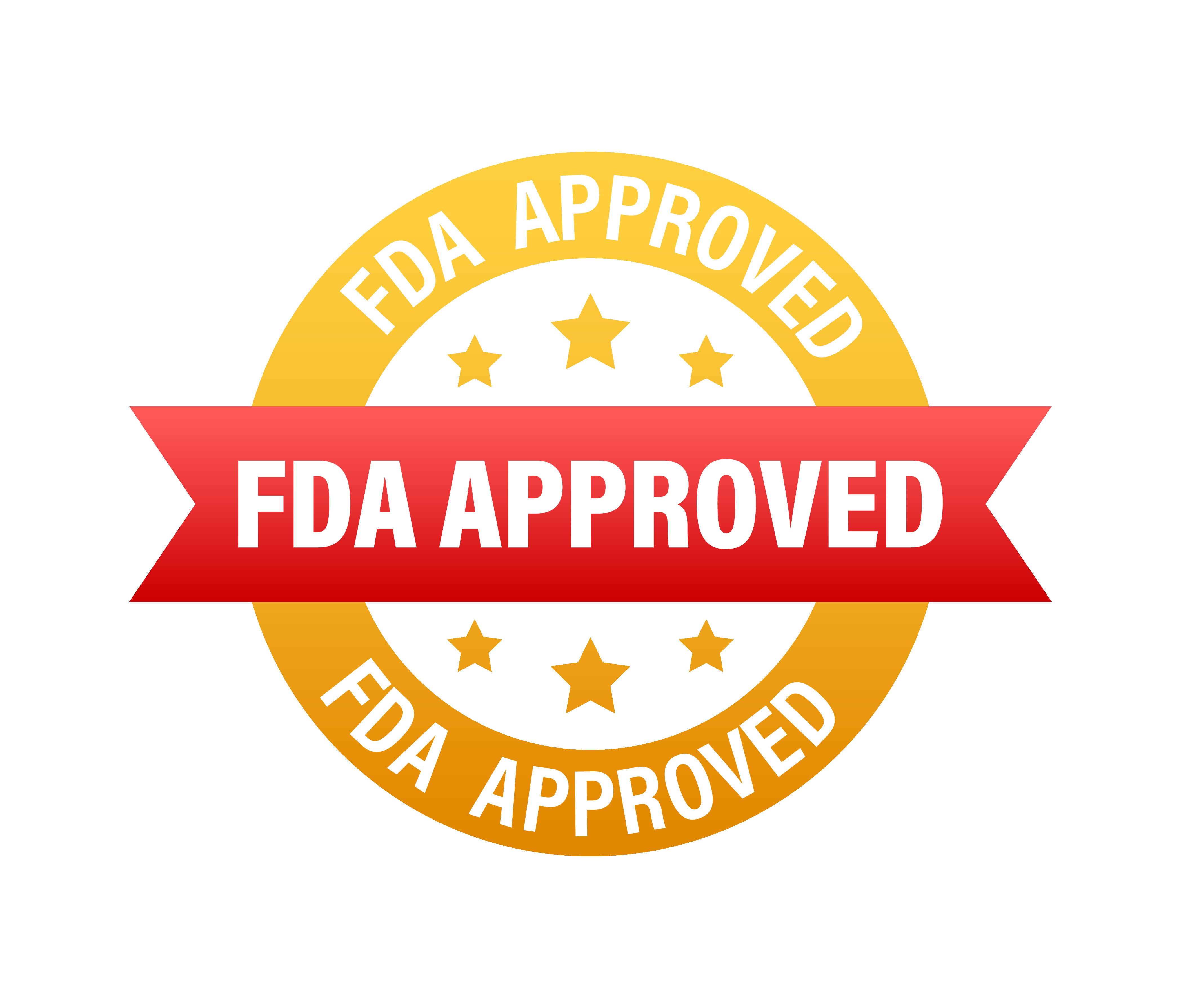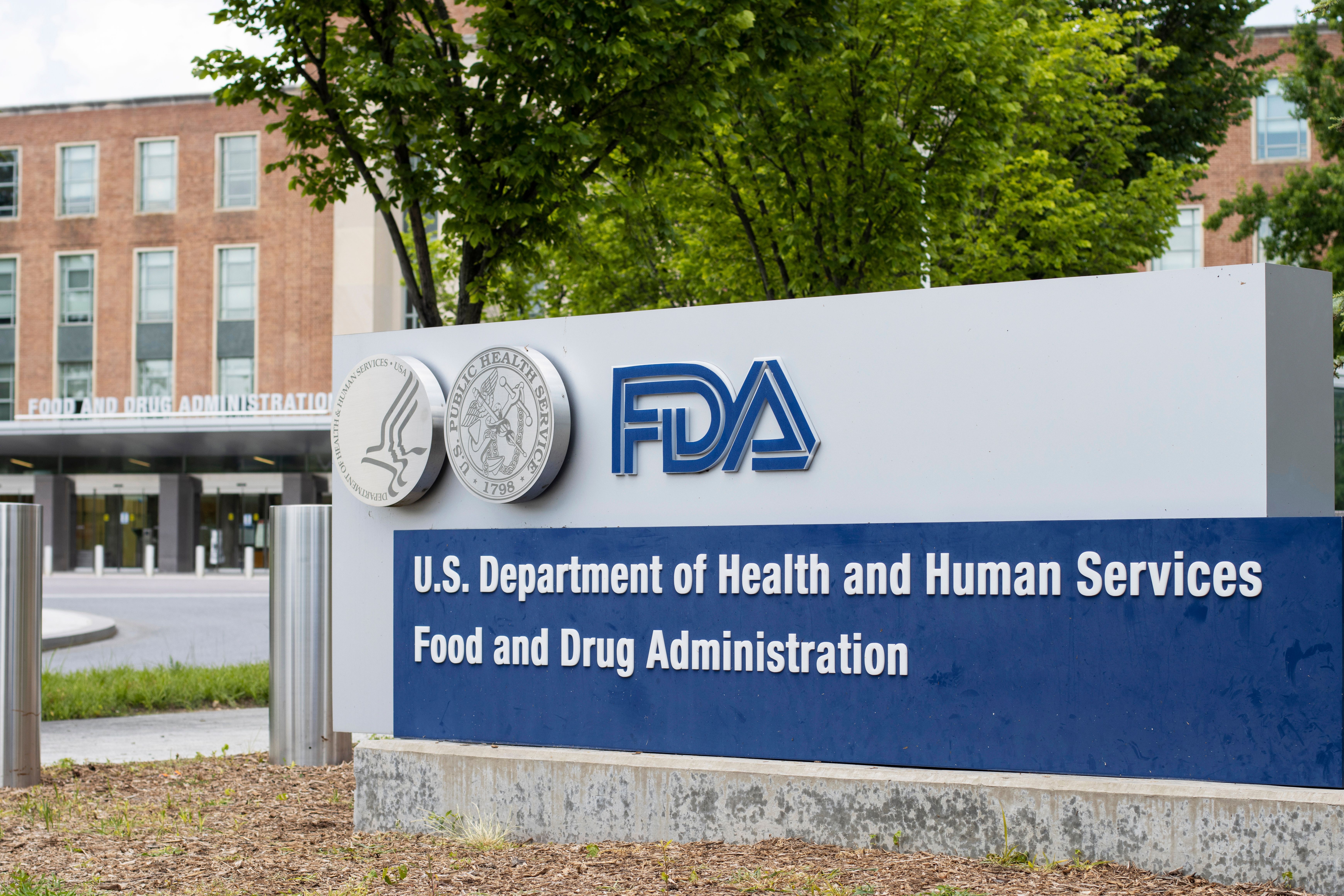News
Article
FDA Approves Amivantamab for EGFR-Positive NSCLC With Exon 19 Deletion, Exon 21 L858R Substitution
Author(s):
The FDA approval of amivantamab-vmjw (Rybrevant) in combination with chemotherapy is the first targeted treatment to cut disease progression risk for EGFR-positive non–small cell lung cancer (NSCLC).
The FDA has approved amivantamab-vmjw (Rybrevant) in combination with standard chemotherapy to treat non–small cell lung cancer (NSCLC) with EGFR exon 19 deletions or exon 21 L858R substitution mutations whose disease has progressed on or after treatment with an EGFR tyrosine kinase inhibitor (TKI).1
EGFR-positive lung cancer represents approximately 10% to 15% of lung cancer cases in the US, commonly occurring in the adenocarcinoma subtype of NSCLC. While patients with this subtype often have little to no smoking history, EGFR mutations can also develop in individuals with other lung cancer subtypes and varying smoking histories. | Image credit: PRASANNAPIX - stock.adobe.com

According to the manufacturer Johnson & Johnson, amivantamab-vmjw in combination with chemotherapy is the only National Comprehensive Cancer Network Clinical Practice Guidelines in Oncology category 1 treatment option for patients with EGFR-mutated NSCLC progressing on osimertinib who have multiple lesions.2
“Rybrevant plus chemotherapy may address the most common mechanisms of treatment resistance to third generation EGFR TKIs, such as osimertinib, in the first line….This multitargeted combination extended progression-free survival and improved overall response compared to chemotherapy alone, offering an important and effective new second-line option for patients,” said Martin Dietrich, MD, PhD, an oncologist at Cancer Care Centers of Brevard, in a news release.
According to the American Lung Association, EGFR-positive lung cancer accounts for about 10% to 15% of lung cancer cases in the US and often appears in adenocarcinoma subtype NSCLC.3 Patients with this subtype tend to have minimal to no smoking history; however, EGFR mutations can manifest in patients with lung cancer with other subtypes and smoking histories.
The expanded approval was based on data from the global, randomized, phase 3 MARIPOSA-2 study (NCT04988295),4 which found that regimens of amivantamab plus chemotherapy and amivantamab plus lazertinib andchemotherapy improved progression-free survival (PFS) and intracranial PFS vs just chemotherapy in patients with these EGFR-positive NSCLC subtypes after failing on osimertinib.
The study included 657 patients with EGFR-mutated NSCLC, who were randomized 2:2:1 to receive amivantamab–lazertinib–chemotherapy, chemotherapy, or amivantamab–chemotherapy.
PFS was significantly longer with amivantamab–chemotherapy and amivantamab–lazertinib–chemotherapy vs chemotherapy (HR for disease progression or death, 0.48 and 0.44; P < .001; median, 6.3 and 8.3 vs 4.2 months). Investigator-assessed PFS results were consistent (HR, 0.41 and 0.38; P < .001; median, 8.2 and 8.3 vs 4.2 months). Objective response rates were higher with amivantamab–chemotherapy and amivantamab–lazertinib–chemotherapy (64% and 63% vs 36%; P < .001). Median intracranial PFS was 12.5 and 12.8 vs 8.3 months (HR, 0.55 and 0.58). Main adverse events were hematologic, EGFR-, and MET-related, with fewer hematologic adverse events in amivantamab–chemotherapy.
In addition to this analysis, amivantamab is being assessed in multiple phase 3 studies, including the phase 3 PALOMA-3 study (NCT05388669), which will look at assessing lazertinib tablets with subcutaneous amivantamab compared with intravenous amivantamab in patients with EGFR-mutated advanced or metastatic NSCLC.5
"This milestone reinforces RYBREVANT as an important treatment option for patients with EGFR-mutated NSCLC who continue to face high unmet needs after disease progression on or after TKI therapy," said Kiran Patel, MD, vice president, clinical development, solid tumors, Johnson & Johnson Innovative Medicine.2 "Patients need and deserve effective, targeted approaches across all lines of therapy. With RYBREVANT-based regimens, we are bringing potential new standards of care to the nearly 30,000 patients diagnosed with EGFR-mutated NSCLC in the United States each year."
References
1. FDA approves amivantamab-vmjw with carboplatin and pemetrexed for non–small cell lung cancer with EGFR exon 19 deletions or L858R mutations. FDA. News release. September 19, 2024. Accessed September 20, 2024. https://www.fda.gov/drugs/resources-information-approved-drugs/fda-approves-amivantamab-vmjw-carboplatin-and-pemetrexed-non-small-cell-lung-cancer-egfr-exon-19
2. Rybrevant (amivantamab-vmjw) plus standard of care approved in the US as first and only targeted regimen to cut risk of disease progression by more than half in second-line EGFR-mutated advanced lung cancer. News release. Johnson & Johnson. September 19, 2024. Accessed September 20, 2024. https://www.investor.jnj.com/news/news-details/2024/RYBREVANT-amivantamab-vmjw-plus-standard-of-care-approved-in-the-U.S.-as-first-and-only-targeted-regimen-to-cut-risk-of-disease-progression-by-more-than-half-in-second-line-EGFR-mutated-advanced-lung-cancer/default.aspx
3. EGFR and lung cancer. American Lung Association. Updated June 7, 2024. Accessed September 20, 2024. https://www.lung.org/lung-health-diseases/lung-disease-lookup/lung-cancer/symptoms-diagnosis/biomarker-testing/egfr
4. Passaro A, Wang J, Wang Y, et al. Amivantamab plus chemotherapy with and without lazertinib in EGFR-mutant advanced NSCLC after disease progression on osimertinib: primary results from the phase III MARIPOSA-2 study. Ann Oncol. 2024:35(1):77-90. doi:10.1016/j.annonc.2023.10.117
5. A study of lazertinib with subcutaneous amivantamab compared with intravenous amivantamab in participants with epidermal growth factor receptor (EGFR)-mutated advanced or metastatic non-small cell lung cancer (PALOMA-3). ClinicalTrials.gov. Updated September 19, 2024. Accessed September 20, 2024. https://clinicaltrials.gov/study/NCT05388669
Newsletter
Stay ahead of policy, cost, and value—subscribe to AJMC for expert insights at the intersection of clinical care and health economics.

PROs Affirm Zongertinib’s Combination of Strong Response Rates With Low Toxicity




